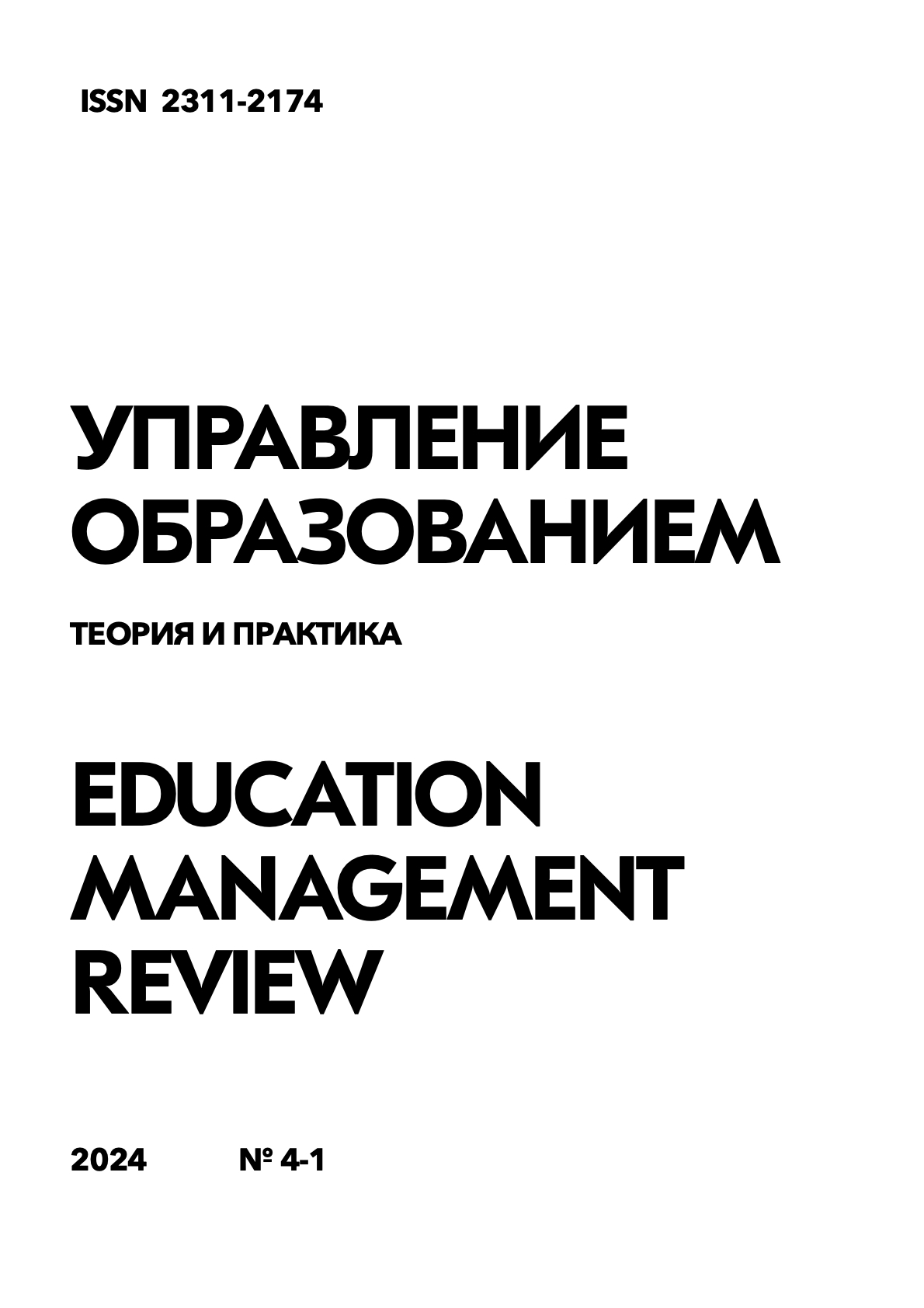Methodological aspects of teaching foreign languages in high
Keywords:
teaching foreign languages, higher education, digitalization of education, information and communication technologies (ICT), teaching methods, blended learning, project activities, gamification, education managementAbstract
This article discusses the methodological aspects of teaching foreign languages in higher education in the context of digitalization of education and its management. The relevance of the topic is due to the rapid development of information and communication technologies (ICT) and their active introduction into the educational process, which requires teachers to adapt traditional teaching methods and develop new approaches. The purpose of the study is to analyze the existing methods of teaching foreign languages in universities and identify the most effective ones in the context of digital transformation of education. In the course of the research, theoretical and empirical methods were used, including the analysis of scientific literature on the problem, generalization of pedagogical experience, questionnaires and interviews of teachers and students. 120 teachers of foreign languages from 15 universities of Russia, as well as 450 students of these universities took part in the survey. Interviews were conducted with 30 teachers who have more than 5 years of experience using ICT in teaching. An analysis of the data obtained showed that 87% of teachers actively use ICT in their practice, while 65% note insufficient methodological and technical support from universities. The most effective methods in the context of digitalization, according to respondents, are blended learning (73%), project activities using online tools (68%), gamification (58%). Students generally positively assess the use of ICT in language learning: 82% believe that it increases their motivation and engagement, 76% note the possibility of individualization of learning. However, 54% of respondents have difficulty working independently with online resources. Interviews with teachers allowed us to identify a number of problems they face when implementing ICT: lack of time to learn new tools (67%), the need to restructure courses (60%), technical difficulties (53%). At the same time, the majority of interviewees (87%) see digitalization as new opportunities for professional development and improving the quality of education. Thus, the conducted research demonstrates that the digitalization of education poses new tasks for teachers of foreign languages, the solution of which requires not only technological equipment, but also the development of innovative methods that take into account the specifics of the subject and the needs of students. Further prospects are associated with a deeper study of the factors influencing the effectiveness of the use of ICT in language training, as well as the dissemination of best practices in the teaching community.
References
Биленко П.Н., Блинов В.И., Дулинов М.В., Есенина Е.Ю., Кондаков А.М., Сергеев И.С. Дидактическая концепция цифрового профессионального образования и обучения. М.: Перо, 2019. 98 с.
Бовтенко М.А. Типология компьютерных учебных пособий // Открытое и дистанционное образование. 2002. № 2(6). С. 80-83.
Богомолов А.Н. Научно-методическая разработка виртуальной языковой среды дистанционного обучения иностранному (русскому) языку: дисс. ... д-ра пед. наук. М., 2008. 354 с.
Веселова П.Н. Цифровые инструменты в работе современного преподавателя РКИ // Информационные технологии в науке, бизнесе и образовании. Проблемы обеспечения цифрового суверенитета государства: мат. XIII Межд. науч.-прак. конф. студ., асп. и мол. Уч. (26 ноября 2021 г., Москва). М.: МГЛУ, 2022. С. 167-172.
Гарцов А.Д. Компьютерная лингводидактика: цели и задачи // Вестник Российского университета дружбы народов. Серия: Вопросы образования: языки и специальность. 2007. № 2. С. 41-48.
Глизбург В.И. Цифровая дидактика как дисциплина программы магистерской подготовки // Вестник Российского университета дружбы народов. Серия: Информатизация образования. 2021. Т. 18. № 2. С 180-187.
Дунаева Л.А., Левина Г.М., Богомолов А.Н., Васильева Т.В. Цифровизация области преподавания РКИ: первые итоги и перспективы // Русский язык за рубежом. 2020. № 5(282). С. 4-9.
Дьякова Т.А., Жеребцова Ж.И., Холодкова М.В. Создание цифровой образовательной среды по изучению РКИ арабоязычными студентами на начальном этапе // Язык, культура и профессиональная коммуникация в современном обществе: мат. XI Межд. науч.-прак. конф. (14-15 апреля 2022 г., Тамбов). Тамбов: ИД «Державинский», 2022. С. 14-18.
Дьякова Т.А., Жеребцова Ж.И., Холодкова М.В. Учебный лонгрид как способ организации цифрового образовательного интернет-ресурса по русскому языку как иностранному // Вестник Тамбовского университета. Серия: Гуманитарные науки. 2021. Т. 26. № 194. С. 113-124.
Ибрагимов Г.И., Ибрагимова Е.М., Калимуллина А.А. О понятийно-терминологическом аппарате дидактики цифровой эпохи // Педагогический журнал Башкортостана. 2021. № 2 (92). С. 20-34.
Информационные технологии в обучении русскому языку как иностранному: история, современное состояние, перспективы: колл. моногр. под ред. В.Б. Куриленко, О.И. Руденко-Моргун. М.: Экон-Информ, 2019. 243 с.
Кожевникова М.Н., Хамраева Е.А., Ряузова О.Ю., Юдушкина О.В. Формирование социокультурной среды средствами лингвострановедческого контента при обучении РКИ // Наука и школа. 2021. № 6. С. 162-172.
Лапидус Л.В. Стратегии цифровой трансформации бизнеса в условиях нарастающей турбулентности цифровой среды // Управление бизнесом в цифровой экономике: мат. IV Межд. конф. (18-19 марта 2021 г., Санкт-Петербург). СПб.: СПб ГУПТД, 2021. С. 20-25.
Лебедева М.Ю. Цифровая трансформация в обучении русскому языку: ожидания преподавателей // Динамика языковых и культурных процессов в современной России. 2022. № 7. С. 1339-1343.
Лебедева Ю. Индивидуализируем онлайн-обучение РКИ: некоторые принципы разработки цифрового учебного контента // Многоязычие и межкультурная коммуникация: Вызовы XXI века: мат. II Межд. конф. (16-23 июля 2016 г., Пула). Пула: Инновации и эксперимент в образовании, 2016. С. 343-347.
Левина Г.М. Специфика преподавания РКИ в цифровую эпоху. Ч. 1. Уровень А1: моногр. М.: Ай Пи Ар Медиа, 2022. 190 с.
Марьянчик В.А., Попова Л.В. Русский язык как иностранный в рамках онлайн-образования: подходы и мнения (по мат. науч. публ. за 2021 г.) // Педагогическое образование в России. 2022. № 1. С. 8-19.
Downloads
Published
How to Cite
Issue
Section
License

This work is licensed under a Creative Commons Attribution-NonCommercial-NoDerivatives 4.0 International License.




